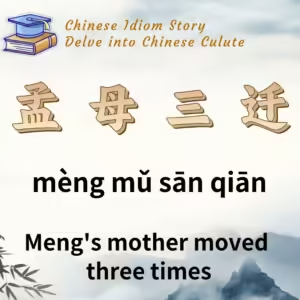
Chinese Idiom: 流连忘返 (Liu Lian Wang Fan)
English Translation: Reluctant to Leave
pīn yīn: liú lián wàng fǎn
Idiom Meaning: Originally refers to being so immersed in enjoyment that one forgets to return; now often used to express a deep attachment to something, making it difficult to part ways.
Historical Source: This idiom comes from Mencius (《孟子》), specifically from the chapter “Liang Hui Wang, Part II.”
Idiom Story:
In 319 BCE, after the death of King Hui of Liang, his son, King Xiang, ascended the throne. Mencius (Mengzi) met with King Xiang and was unimpressed, stating that he did not appear to embody the dignity of a ruler. This unfavorable impression likely led Mencius to leave Liang and travel to Qi, where he found that King Wei had also passed away, and King Xuan had taken the throne for about two years.
During a meeting with King Xuan of Qi, Mencius emphasized that a ruler should prioritize the happiness of the people, equating their joy with his own and sharing in their sorrows. He explained that if a king genuinely cares for his subjects, they would, in turn, regard his happiness as their own and share his concerns, ensuring loyalty from the populace.
Mencius also recounted a conversation between King Jing of Qi and his minister Yan Zi. King Jing asked Yan Zi how he could emulate the virtuous kings of the past on his travels to the scenic areas of Zhi Fu and Zhao Pi, culminating in a trip along the coastline to Langya. Yan Zi responded that the purpose of such journeys should be to inspect the land and the well-being of the people, integrating work with leisure.
He argued that righteous rulers of the past would conduct inspections to ensure the welfare of the citizens, whereas modern kings engaged in lavish and wasteful excursions, causing hardship for the people. Yan Zi lamented that these indulgent travels could lead to neglect and suffering, calling such behavior “流连荒亡” (lingering and causing ruin). This phrase denoted mindless enjoyment leading to a failure to return home, whether through endless pursuits or excessive drinking.
King Jing took Yan Zi’s advice to heart and decided to abandon these self-indulgent expeditions.
From this discourse, the idiom “流连忘返” was derived, capturing the essence of being so captivated by an experience that one is reluctant to depart.






